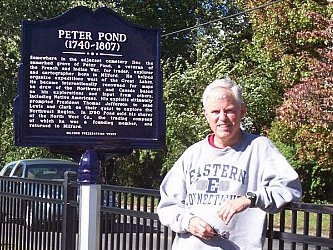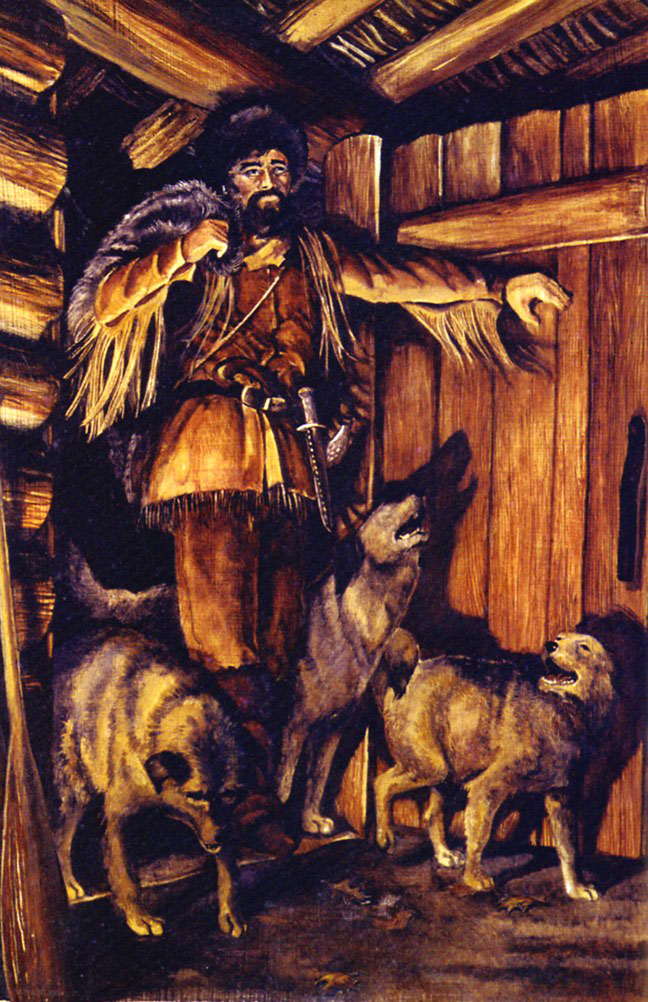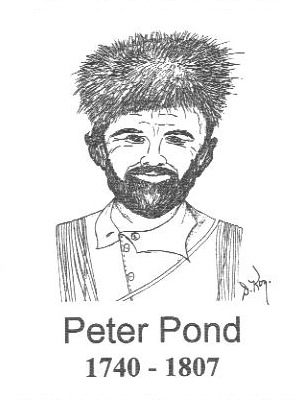Peter Pond newsletter :: June 2016 :: #48
PETER POND'S RELIGION & REVOLUTIONARY WAR
As we head into summer, I want to share comments and observations on the adventurer and fur trader from retired Canadian history professor Barry Gough stemming from PPS Newsletter 44. It was there, you may remember, that I produced strong evidence that PP had been baptized Anglican or Episcopalian and was not Congregational, the predominant religion in the colonies at the time. I have been corresponding with Barry for years as the best authority on PP. He wrote a long article about him in Dictionary of Canadian Biography about 20 years ago, and he recently published The Elusive Peter Pond: The Soldier, Fur Trader and Explorer Who Opened the Northwest. Here he laments the fact that he didn't know PP's actual religion before writing the book. His other observations are interesting too.
Dear Bill
Fascinating to read in a recent Peter Pond newsletter that Neil Olsen has discovered what seems incontrovertible proof that Peter Pond was baptized an Episcopalian, or Anglican. I have no reason to doubt it. I only wish I had known this before I completed The Elusive Peter Pond two years ago.
In writing my account of the life of this remarkable, quixotic man I assumed that Peter Pond was a member of the Congregational Church, for it seemed from what I could gather from my own research and inquiries that the Congregationalists held Milford in fee, as it were. I had forgotten that there was room for dissent -- from the Anglican perspective, that is (for the connections of church and state were similar under various charters and agreements).
Also noteworthy in your story was what was said about Peter Pond in regards to a connection he had with Yale College. On the one hand, this may explain how Peter Pond at the height of his trading explorations and experiences was able, quite easily, to approach the college president of the day, the avuncular Ezra Stiles, a person whose interests in western America, geography and United States independence ran deep indeed. Peter Pond never says, as far as I know, how he came to knock on the door of Stiles at Yale, and Stiles does not give any clue either. Introductions of one sort or another must have been made. On the other hand, Peter Pond was well known in high circles in Quebec, in London, and therefore likely in the Thirteen Colonies as a powerful force in wilderness trade and exploration, with a strong record of corporate development and uniquely attractive map making capacities.
One more thing: when Peter Pond left home to join the colonial militia for the first time, he talks about how the fifes and drums proved irresistible. He took the King's Bounty and lived in the tavern, befriended by Captain Baldwin. I had assumed that Peter Pond was an adolescent renegade, defying his parents, and leaving home to join the army. I thought that maybe as a Congregationalist (as was my father and his family) they would be both non-conformists and possibly pacifists or anti-war. Let's look at this from a different angle. Perhaps Peter Pond was more royalist because he was an Episcopalian, or Anglican. This can be taken to mean that he was not just an adolescent runaway but a young patriot. Circumstances were perhaps to change all of that.
It is grand when new evidence comes forward on an elusive figure. One thing seems clear, however, under that heading: Sir Alexander Mackenzie never gave Peter Pond the credit he deserved. For all of Mackenzie's attributes and all his greatness, he can surely be faulted for being so cheap when it came to handing out praise for those who had lit the path for him.
Yours on the historical trail,
Barry Gough

Au revoir,
Bill
website design by Daniel Ortoleva

